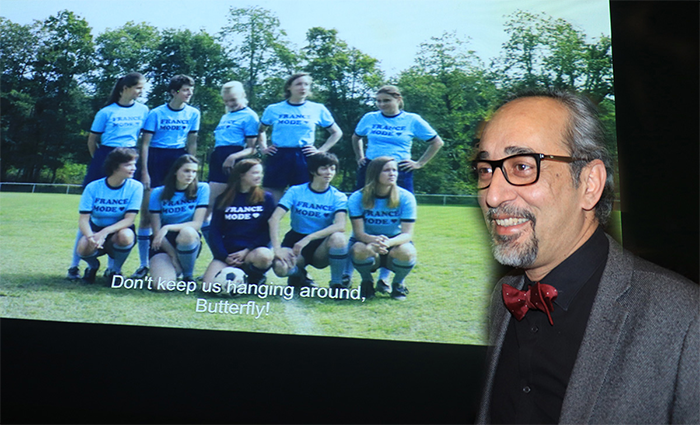By: Atle Hetland
“Comme des Garcons”, in English, ‘Let the Girls Play’, is film by Julien Hallard, released in April 2018, about the early years of women soccer football in France. That time, in the 1960s, women were not allowed to play football because most if not all football clubs and the national football league were only for men.
When women came on the scene, following their sisters in other European countries who were a bit ahead of France in this field of gender equality, it was initially seen by many men as a huge provocation that women wanted to intrude on their domain and play the ‘beautiful game’.
The ideal French woman was not supposed to play a rough sport like football; she was supposed to be feminine and ladylike. To smoke a cigarette or sip a glass of wine would be OK, along with the boys or with other women, but to play football was seen as going too far. Well, it was especially the old men, and the not so old men, who were against allowing women into the sport. It was about changing attitudes and culture, and that rarely come without struggle, and it may take a while. In France, success was around the corner.
The film was screened by Alliance Francaise at PNCA in Islamabad recently. The hall was full and the humor in the film made the audience see how ridiculous it was not to allow women to enter the game of football. But then, perhaps it wasn’t really just a fun film; it was rather a serious film about gender equality in light packaging. Julian Hallard’s film manages to summarize the recent sport and gender history in an elegant way.
“The style worked well. It shows how slow and reluctant change in the field of gender equality, but it also applies to other fields”, said an elderly Pakistani woman after the film. “I thought it was smart to have made the film about women football pioneers around media people. We often think media people are liberal and open-minded, but that is not always the case”, she added.
A European man said that in Scandinavia, he recalled how strange he himself thought it was to see a woman reading the sports news on TV in the early 1970s. “We asked: what would a woman know about men’s sports? Today, women sports journalists are as respected as men, well, almost. But still, it is a fact that men’s sports get much more air time on electronic media and more space in print media than women’s sports.”
A Pakistani woman was proud to tell some of the foreigners in the audience that in Pakistani cricket women have in recent years done very well. “The men seemed to appreciate women in ‘their game’, and would cheer women when they were doing well. Yet, still it is the men’s teams that are more popular, yes, even among women”, she said.
A French woman in the audience said she had to go on Internet to check facts how old-fashioned French men had been in the 1960s. Maybe some things were exaggerated, and the legal rights and attitudes were mixed. “Often, people have equal rights legally, but traditions may give men the upper hand to decide, for example ‘allow’ his wife to play football. That we see in Pakistan, too, women let the men have the final word”, said a Pakistani woman.
Asad ur Rehman, a French painter of Pakistani heritage, said that ‘Comme des Garcons’ is an important film about gender equality. “But it has lessons also in many other fields. Often, we are slow in accepting new things. That I have seen in my field of expressionist painting and modern sculpture work”, he said.
“People should educate themselves so that they can understand new trends. Lack of knowledge and being unaware of different traditions can lead us to be stuck in the past. We should always be curious and open to new things, even if we don’t accept everything new. In visual art, music and literature we always do that”, said Asad.
